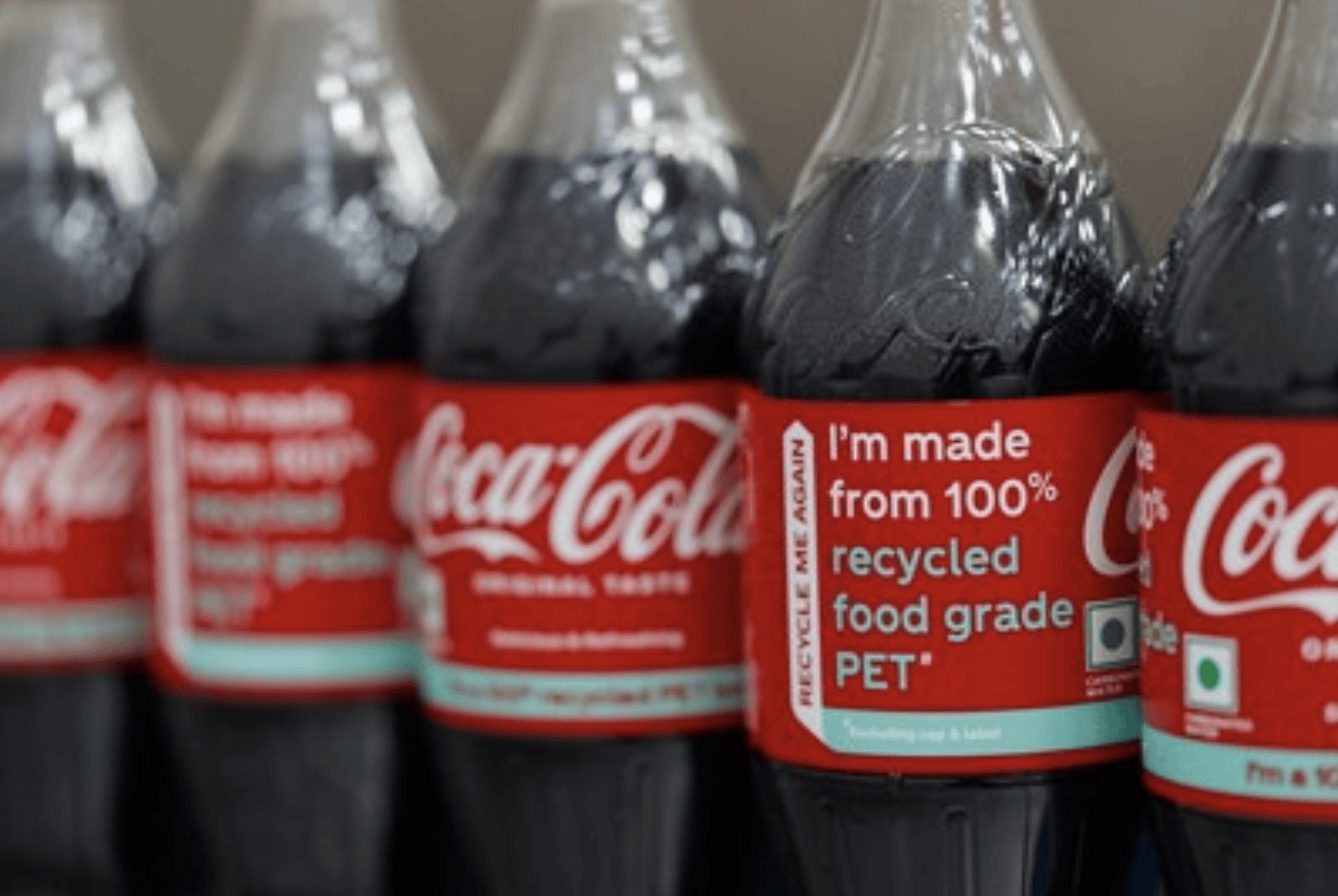Coca-Cola shifts sustainability priorities: What happened to 50% rPET?

Sustainability
Coca-Cola, a long-standing leader in the beverage industry, has recently revised its widely publicised sustainability strategy, scaling back its ambitious target of using 50% recycled plastic (rPET) in its packaging by 2030. The announcement has sparked significant discussion across the packaging sector, raising questions about the challenges brands face in balancing environmental goals with market realities.
The Initial Goal: 50% rPET by 2030
In recent years, Coca-Cola committed to integrating 50% recycled content into its plastic packaging as part of its broader World Without Waste strategy. The plan aimed to reduce the company’s environmental footprint while responding to growing consumer demand for sustainable practices. This target aligned with the global shift toward a circular economy, where waste materials are reintroduced into production cycles rather than being discarded.
The Shift in Strategy
Coca-Cola’s revised approach no longer emphasises the 50% rPET target. Instead, the company is focusing on other initiatives within its sustainability framework, such as increasing the use of refillable packaging and enhancing collection and recycling systems in key markets. While Coca-Cola remains committed to tackling plastic waste, this pivot suggests a recalibration of priorities and resources.
Why the Change?
The decision to scale back the 50% rPET goal appears to stem from several key challenges:
- Supply Chain Limitations: The global supply of high-quality recycled plastic remains constrained. With increased demand across industries, securing sufficient quantities of food-grade rPET has proven difficult and costly. Many companies are competing for the same limited resource, driving up prices and creating supply bottlenecks.
- Economic Pressures: Rising raw material costs and inflationary pressures may have influenced the feasibility of meeting the 50% rPET target. Prioritising cost-effective solutions while maintaining competitiveness in the market is a delicate balance.
- Focus on Reuse and Refill: Coca-Cola has placed greater emphasis on scaling its refillable packaging solutions, particularly in emerging markets where such systems can have a significant impact. This approach aligns with the company’s belief that reducing the overall need for single-use plastics is as important as recycling efforts.
- Regulatory Landscape: Varying recycling infrastructures and regulatory frameworks across Coca-Cola’s global markets present additional hurdles. Achieving uniform recycled content standards in a fragmented regulatory environment is a complex undertaking.

Industry Reaction
The announcement has drawn mixed reactions from stakeholders. Environmental groups have expressed disappointment, noting that ambitious corporate targets drive progress and innovation in sustainable packaging. However, some industry insiders view the shift as a pragmatic response to real-world challenges.
Coca-Cola’s decision highlights the difficulties companies face in navigating the intersection of sustainability, economics, and operational realities. It serves as a reminder that even the largest corporations encounter obstacles in achieving their green goals.
Broader Implications
Coca-Cola’s pivot may influence other companies to reassess their sustainability strategies. As the demand for recycled materials outpaces supply, industries may need to explore alternative approaches to reducing plastic waste, such as investing in advanced recycling technologies, developing bio-based materials, or prioritising reuse systems.
This development also underscores the importance of collaborative action. Strengthening recycling infrastructure, standardising material collection, and fostering partnerships across sectors are critical to creating a truly circular economy.

Conclusion
While Coca-Cola’s revised strategy reflects the complexities of implementing large-scale sustainability initiatives, it also signals an evolving approach to tackling plastic waste. By shifting focus to refillable packaging and systemic improvements, the company continues to pursue its overarching goal of reducing its environmental impact, albeit through different means.
The announcement serves as both a cautionary tale and an opportunity for reflection. As businesses face mounting pressure to deliver on sustainability promises, the packaging industry must collectively address the barriers to progress and work toward scalable, impactful solutions.
Related News
-
Sustainability
Coca-Cola and Merlin offer VIP rewards for recycling plastic bottles
-
Business
Coca-Cola launches new on-pack promotion for UEFA EURO 2024
-
Sustainability
Coca-Cola launches 100% rPET bottles in Hong Kong
-
Sustainability
Coca-Cola's smartwater now available in aluminium cans
-
Sustainability
Coca-Cola trials 'label-less' packaging for Sprite on-the-go bottles




